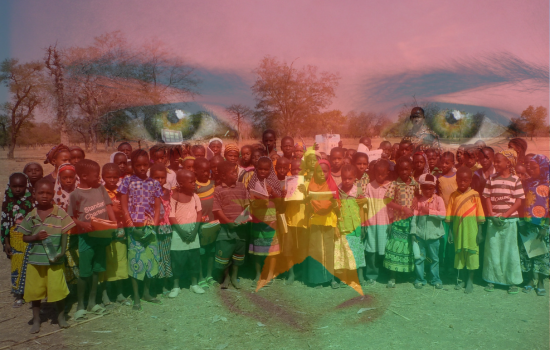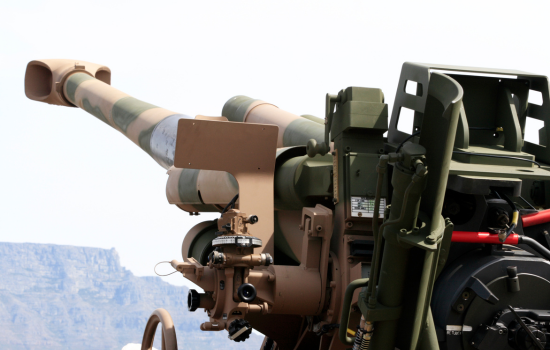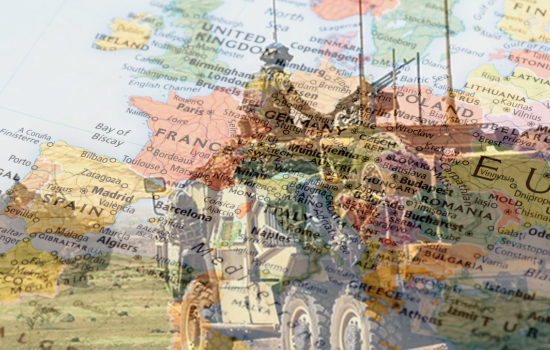Libya and Terrorism
Reprinted from “Survey of Arab Affairs-A periodic supplement to Jerusalem Letter /Viewpoints”
Over the past twenty years, Libya has been foremost on the list of countries supporting terrorism. Upon seizing power in 1969, Muammar Qaddafi put the dissemination of his revolutionary ideology throughout the world at the top of Libya’s national agenda. The Libyan authorities earmarked vast economic and military resources for the realization of their “revolutionary goal: Libya established extensive ties with dozens of terrorist organizations around the world, providing these groups with varied assistance. Numerous terrorist attacks have been carried out on Libya’s behalf or with its help in Europe, Asia, South Africa and South America. Qaddafi has declared that the day his men would carry out attacks in North America as well, was not far off.
Addressing the Organization of Non-Aligned States in September 1986, Qaddafi declared: “I will do everything in my power to divide the world into imperialists and freedom-fighters.” Any violent action against one of the “imperialist” states is just and welcome. Those perpetrating these attacks are not “terrorists” in Qaddafi’s parlance, but rather “freedom fighters,” because “national liberation can only be achieved through armed struggle.” Any attempt at bargaining, negotiating or reaching a compromise with the “imperialist bloc” is doomed to failure and will harm the Arab cause.
In accordance with the ideology adopted by Libya following Qaddafi’s rise to power, the country vigorously applied itself to aiding terrorist “freedom organizations” and dictatorships threatened by the democratic “imperialist enemy.”
Aiding International Terror
During this period, Qaddafi established the first terrorist training camps on Libyan soil, began the flow of arms to the various terrorist organizations, and granted asylum to “wanted” terrorists.
In November 1976, Libyan and Algerian representatives concluded a secret agreement to arm, finance and train the Basques in Spain, as well as the Britons and Corsicans in France. In December 1977, Libya convened a conference in Tripoli of Arab nations opposed to the Sadat initiative, including Algeria, Syria, Iraq, South Yemen and the PLO, as well as host Libya.
Qaddafi transferred considerable sums of money to the Sandinistas in Nicaragua and groups in El Salvador. In April 1983, a Libyan plane landed in Brazil purportedly carrying medical supplies destined for Nicaragua. Large quantities of arms were discovered in the plane’s hold, for delivery to the Colombian group M19.
The groups aided by Libya also include the IRA in the U.K. the Red Brigades in Italy; and others in Japan, Turkey, Thailand and elsewhere, as well as the various Palestinian terrorist groups.
Qaddafi even went so far as to send Libyan troops to areas of international conflict or to the aid of the organizations he sponsored in the form of military instructors, specialized units, or combat regulars. Libya sent troops to aid the PLO in Lebanon in Mid-1981 (just before Operation Peace for Galilee began) along with SA-9 surface-to-air missiles (SAMs) and ZSU anti-tank weapons.
Many terrorist organizations around the world succeed in carrying out attacks only because they enjoy lavish Libyan support. Libya provides monthly or annual payments to various organizations worldwide. It also collects a 6 percent tax on the income of Palestinians working in Libya, and transfers the money to the PLO-controlled Palestine National Fund. Libya has also made special grants to those responsible for a particular attack, or to a specific organization, in recognition of their actions. In their early 1970s, Qaddafi awarded Arafat $5 million in recognition of the massacre of Israel athletes carried out by Arafat’s men at the Munich Olympics.
Numerous terrorist organizations around the world employ Soviet-made arms, supplied by Libya. These arms include BM-21 grenade-launchers with a range of 40 kilometers, 122 mm Katyusha rocket launchers, 130, 122 and 57mm field guns (such as supplied to the PLO in Lebanon immediately prior to Operation Peace for Galilee), as well as sub-machine guns, grenades and explosives used in terrorist attacks.
In March 1990, the President of Czechoslovakia revealed that the communist regime in his country had provided the Libyan authorities with 1,000 tons of Semtex plastic explosives. According to the Czechoslovak President, “this quantity is sufficient to support terrorism throughout the world for 150 years.” Worldwide attention has also been focused at Libya’s capacity for the production and storage of large quantities of nerve gas.
Libya’s embassies throughout the world serve the terrorist groups as arms supply centers with weapons transported to the embassies from Libya by diplomatic pouch. Libyan diplomats also supply terrorists with intelligence regarding possible targets, forged documents, and assistance in arranging safe-houses in the target countries.
Many terrorists around the world receive training in Libya. Libya opened its military bases to the terrorist organizations and accepted numerous terrorists to various training courses in all fields of military expertise. PFLP leader, Ahmed Jibril, has declared: “Libya trains my men in hijacking and carrying out suicide attacks against Israel. The PFLP’s pilots train on Mig-23s.” Libya has also established special training camps on Libyan soil to serve hundreds of terrorists from various groups. At these bases – centering around the towns of Sinawin, Zuwarah and Tubruq – the terrorists train under Libyan, Cuban and other instructors. In addition, the Libyans help the terrorist organizations to recruit operatives, Palestinians in particular, from among their brethren residing in Libya.
The Libyans have offered on many occasions to serve as a haven for terrorists wanted by various countries for the perpetration of attacks. Such was the case with the three murderers of the Israeli athletes in Munich in 1972, those responsible for the massacre at Athens airport in 1973, the hijackers of the Jewish immigrants train in Vienna in 1973, as well as others.
Direct Libyan Involvement
Further terrorist attacks initiated by Libya include those commissioned by key members of the Libyan political hierarchy or their surrogates in the security forces. They are carried out by various terrorist organizations in return for generous financial payment.
In 1989, a French airliner exploded over the Saharan Desert, killing 170 passengers and crew. A French judge appointed to investigate the tragedy issued an international warrant for the arrest of a number of Libyan nationals suspected of having caused the explosion, included: Abdallah Sanoussi (Qaddafi’s nephew, considered number two in his intelligence services), Mussa Kussa (deputy foreign minister in charge of terrorist activities outside Libya), and Abdallah Salem Zadma (number three in the Libyan Intelligence services).
Following the attempted attack at the Nitzanim and Ga’ash beaches in Israel in May 1990, Amnon Shahak, head of the IDF Intelligence Branch, stated that the mother ship had transported the terrorists’ boats from the Libyan port of Benghazi to the Israeli coast. The Libyans had assisted in preparations for the attack at all stages. According to Shahak, “The mother ship was Libyan, its crew was Libyan, a Libyan military officer was on board, and the Libyans also helped transport the terrorists from their base to the ship.”
U.S. Reaction to Libyan Terrorism
The economic sanctions led to fears that Qaddafi would attempt to take revenge against the U.S. and Libya indeed embarked upon a campaign of terrorism against the U.S. and Western targets in Europe. In March 1986, American targets were struck in Lebanon, Italy and Germany. The most severe was the bombing of a Berlin discotheque, killing two U.S. servicemen and injuring dozens.
In order to put a stop to the wave of terrorism sweeping over Europe, the U.S. concentrated troops from the Sixth Fleet in the Gulf of Sidra opposite Libya. A continuation of the terrorist attacks led the U.S. to take retaliatory military action and in April 1986, American planes attacked government and military installations in Benghazi and Tripoli, killing thirty Libyans.
According to the U.S. State Department annual report on international terrorism published in May 1990, Qaddafi continues to support some thirty terrorist groups, including that of Abu Nidal, with funds, training and other assistance.
In January 1991, President Bush informed the U.S. Congress that he was continuing U.S. sanctions against Libya, since the “Libyan government continues to employ international terrorism and to support it, in violation of international law and international rules of conduct.”
Pan Am Flight 103 (Lockerbie)
Senior Libyan officials, both within the political establishment and the upper echelons of the military hierarchy, are engaged in developing and maintaining Libya’s ties with terrorist organizations around the world. The scope of the vast aid granted by Libya, both in the past and at present to international terrorism, varies according to Libya’s international standing and its critical interests at any given time. Thus, when the West increases its pressure upon Libya (whether economic, diplomatic or military), it curbs some of its contacts with the various terrorist organizations. However, when Qaddafi feels the economic or military noose loosening, he immediately renews ties with the terrorist organizations, even publicly flaunting those ties.






